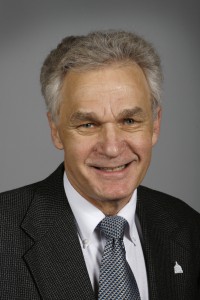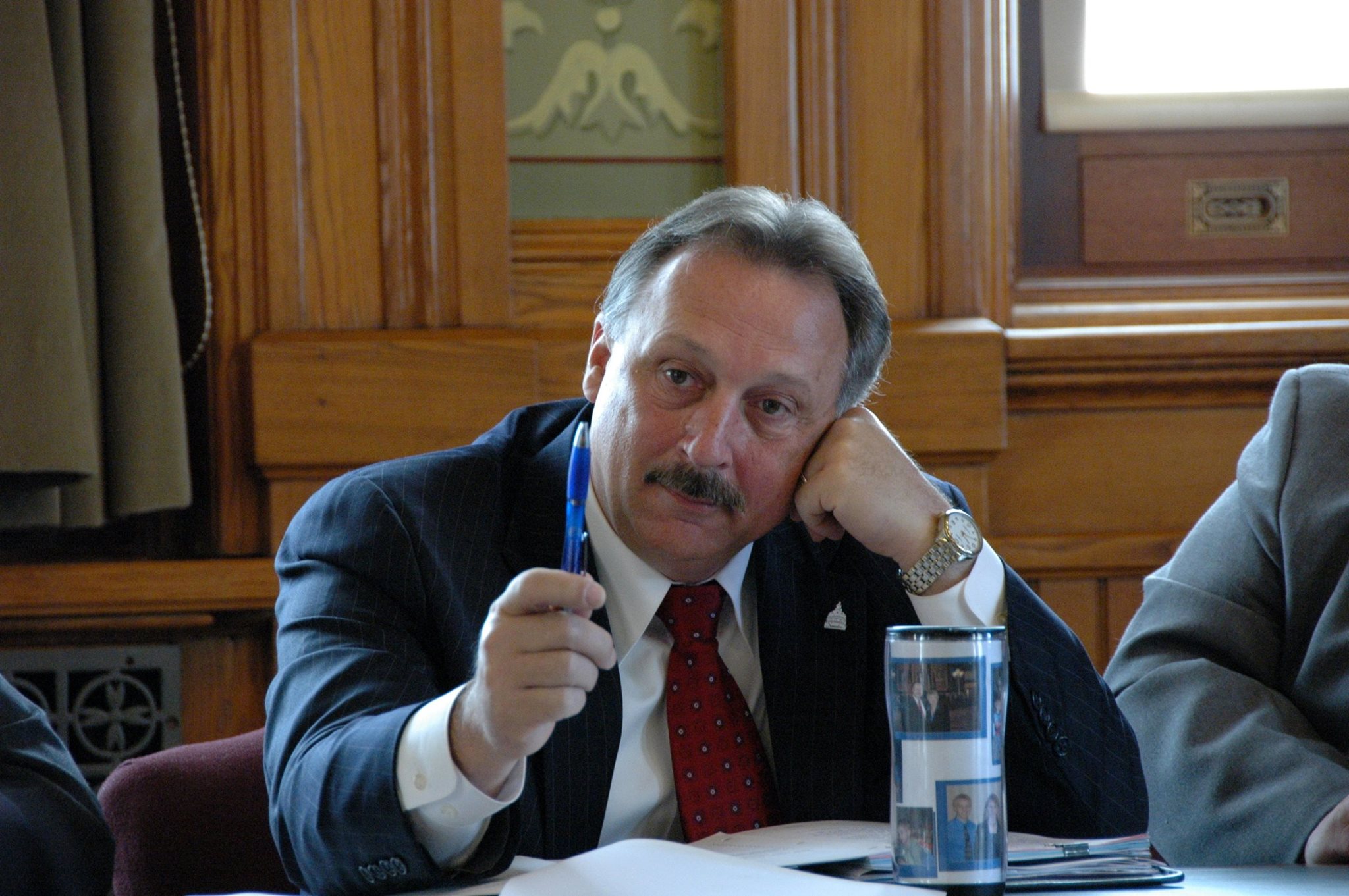Democratic State Senator Joe Seng has died after a two-year battle with brain cancer, Iowa Senate leaders confirmed today. I enclose below comments released by Senate Majority Leader Mike Gronstal and Senate President Pam Jochum.
With the upper chamber split 26-24 and many important votes falling along party lines, Democratic leaders needed Seng’s presence often during the last two legislative sessions. He had phenomenal dedication and kept showing up for work while fighting a monstrous disease and undergoing regular chemotherapy. The Des Moines Register’s William Petroski posted a video of Seng singing and playing the accordion for his colleagues in April 2015.
Seng served as Davenport’s alderman-at-large and mayor pro-tem before representing parts of Iowa’s third-largest city for two years in the state House and fourteen in the Senate. A veterinarian by training, he chaired the Senate Agriculture Committee in recent years and served on the Commerce, Ethics, Labor and Business Relations, Natural Resources and Environment, and Ways & Means committees.
After Iowa’s new map of political boundaries put Scott County in the second Congressional district, Seng challenged U.S. Representative Dave Loebsack and won about 18 percent of the vote in the 2012 Democratic primary. In his final re-election campaign two years ago, Seng easily defeated a primary challenger and did not face a general election opponent.
Seng’s passing will force a special election later this year in Senate district 45 (map enclosed below). Because the district contains more than twice as many registered Democrats as Republicans, the only real competition to replace Seng will be for the Democratic nomination, to be decided at a district convention. Democrats Jim Lykam and Cindy Winckler have represented the two halves of Seng’s Senate district in the Iowa House since 2003.








